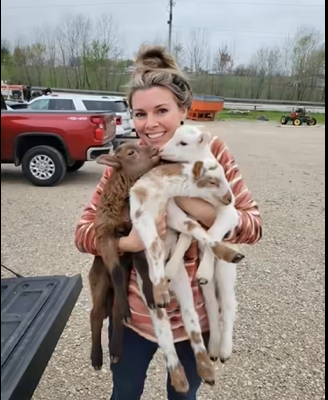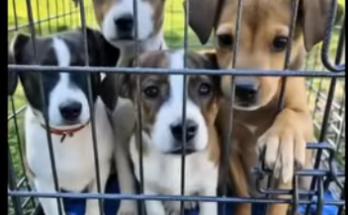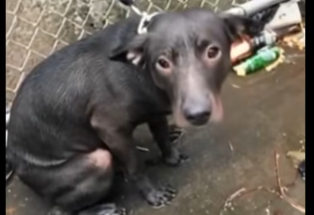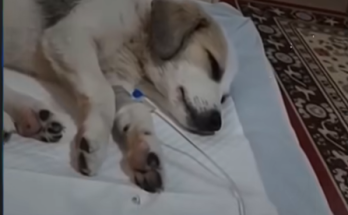I hadn’t meant to stop at that roadside auction.
I was just driving home from my mom’s old house—having packed up the last box of her sweaters, doing everything I could not to break down behind the wheel—when I spotted the sign: “FARM SALE – TODAY ONLY.” Something inside me told me to pull over.
The air was thick with dust, diesel fumes, and the scent of old hay. I wasn’t there to buy a thing. But then I saw them—three tiny goats, curled up in the corner of a pen. One brown, one white, one with speckled patches like an unfinished painting. Shivering. Far too young to be without their mother.
The man running the pen said they hadn’t sold. Called them “leftovers.” Said they were headed for feed.
That word—leftovers—stung.
The night before my mom passed away, she looked at me through her oxygen mask and whispered something I didn’t fully understand then:
“Don’t leave the soft things behind.”
I assumed she meant keepsakes. Or maybe her old dog.
But standing there, staring at those fragile baby goats—barely skin and bones, trembling—I heard her words echo in my chest like a drumbeat.
So I did something completely unexpected.
I gathered all three in my arms and said, “I’ll take them.” I had no plan. No land. No clue how to care for goats. Just a car full of blankets and a heart still raw with grief.
And when they snuggled into my arms, bleating like I was someone they’d known forever, I understood.
“Don’t leave the soft things behind.”
She wasn’t talking about things at all. She meant this. Moments like this. Lives like theirs.
I didn’t have a farm—but I had a choice.
So I drove home to my little house in the suburbs with three baby goats in the backseat, my pulse racing like I’d stolen something.
My neighbor, Miss Edna, was outside watering her roses when I pulled into the driveway.
She raised an eyebrow. “Tessa, you raising livestock now?”
I gave a nervous laugh. “I… I guess I am.”
To my surprise, she didn’t judge me. She just said, “You’re gonna need help. Come by after dinner.”
Turns out, Miss Edna had grown up on a dairy farm. She took me under her wing, taught me how to bottle-feed, keep their bedding clean, and watch for signs of sickness. We turned my garage into a temporary pen while I researched local farms and the fine print in zoning laws.
I named them Maple, Clover, and Pepper.
They followed me everywhere. Mornings were for bottles, afternoons for backyard mischief, and nights for gentle snoring from their cozy hay nest. They mended a part of me I hadn’t even realized was broken.
But not everyone was on board.
Two weeks later, a knock came at my door. Mr. Halvorsen from the HOA.
“You can’t keep livestock in the neighborhood, Ms. Martin. It’s against our rules.”
My stomach dropped. I tried to explain—they were rescues…



